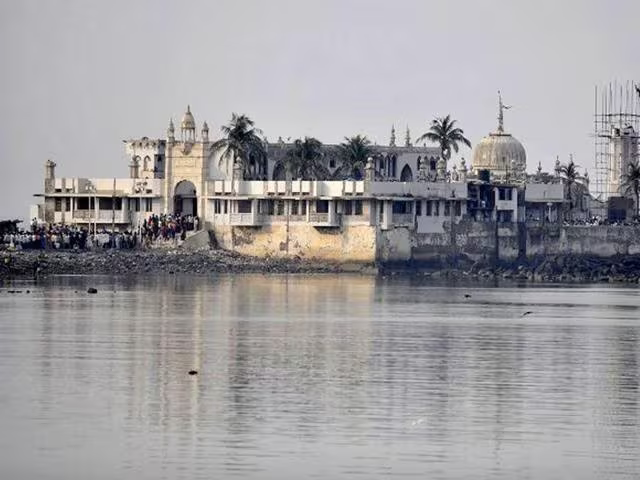The sudden ban on the entry of women by the trustees at Haji Ali could set a very dangerous precedent. If women are excluded today, it could be non-Muslims tomorrow. Namita Bhandare writes.

In all the years that I lived in Mumbai, I must have passed by the mosque on the sea over a hundred times. For me, Haji Ali is imprinted in my imagination as an indelible part of the syncretic, inclusive culture of a city I love. But I never actually went inside.
So why does the news of a ban on the entry of women into the sanctum sanctorum of the dargah dismay me? How does it concern me? There are dargahs where women traditionally do not enter the actual mazaar (grave) of the saint. In Delhi’s Nizamuddin, women can pray at the shrine, but cannot enter it. The entry of women is also curtailed at the shrine of Qutubuddin Bakhteyaar Kaaki, the patron saint of Delhi, points out film-maker Sohail Hashmi. But the shrine of Pir Haji Ali Bukhari built in 1431 has traditionally allowed men and women equal access. It is only over the past year that someone put up a steel barricade that now prevents women from entering the actual shrine.
Noorjehan Safia Niaz, a devotee who has been visiting Haji Ali since she was a child, says that in March 2011 she was able to go right inside. But when she visited again in July this year, she encountered the barricade.
Niaz, the founder of the Bharatiya Muslim Mahila Andolan, an organisation that works to develop Muslim women leaders, is now pushing to get the ban reversed. But so far, she’s not had much luck. Meetings with Maharashtra state minorities minister Mohammad Arif Naseem Khan and state minorities commission chairman Munaf Hakeem yielded no hope. “They refused to accept responsibility. They said it concerns the Shariah and they will not intervene,” says Niaz.
The invocation of the Shariah to impose a ban on the entry of women is an ‘invented tradition’, says historian and writer S Irfan Habib. “This is what Wahhabi Islam does. It imposes one main version of Islam when in fact there are diverse traditions.”
The Constitution guarantees equality to all citizens — men, women, high born, low born, Hindu, Muslim. When religious edicts clash with the law then which should get primacy? Moreover, religious orthodoxy is not the monopoly of any one religion. Hindu temples like Sabarimala disallow women between the ages of 10 and 50. Other temples prohibit the entry of non-Hindus. And if the Kerala government can rule that the nearly 15,000 private temples in the state must pay minimum wages because that is the law, then can the trustees of another religious shrine take refuge in their personal law?
If there is a silver lining to be found then it is in the nearly universal condemnation on social media over the ban. Cutting across political and ideological lines, some felt the step was regressive and discriminatory. The All India Democratic Women’s Association has expressed its ‘outrage’. There are serious concerns about a creeping sense of intolerance and the subversion of a tradition of inclusion.
Even the Congress — its record goes back all the way to Shah Bano to its support of a Deobandi demand earlier this year that Salman Rushdie be disallowed from visiting India — seems to have taken a stand. Senior leader Digvijaya Singh called the ban a ‘regressive step’ and added that ‘Talibani thought’ cannot be allowed in India.
The sudden ban on the entry of women by the trustees at Haji Ali could set a very dangerous precedent. If women are excluded today, it could be non-Muslims tomorrow. A ban at one dargah could lead to a ban at other dargahs where women and non-Muslims have traditionally been welcomed. Where do prohibitions end? At what point does one small ban become a giant slide into intolerance? The Haji Ali trust’s ban must concern every Indian who is invested in the direction we wish to take as a nation. Bans, even in the guise of religious prohibition, mitigate our traditional tolerance, inclusion and diversity. They strike against the very idea of India.
Namita Bhandare is a Delhi-based writer